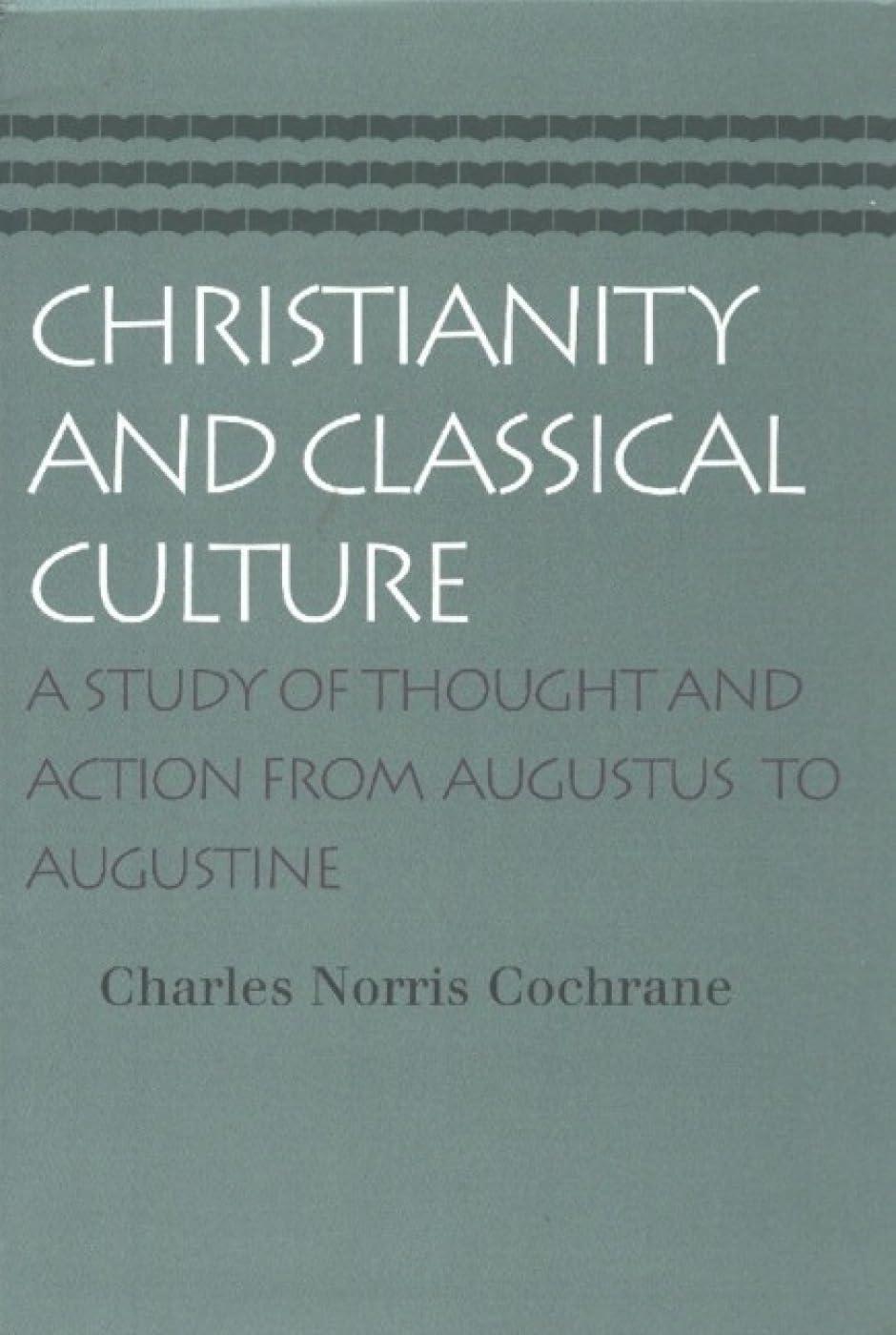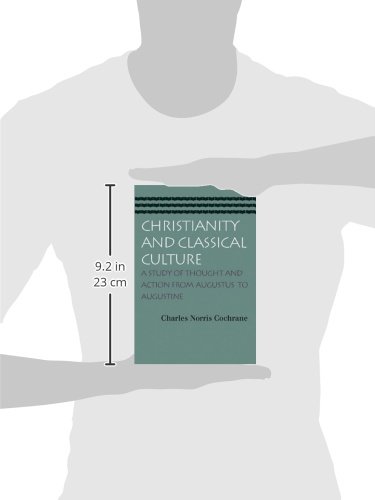


Christianity and Classical Culture: A Study of Thought and Action from Augustus to Augustine
K**D
I Remember Rome
I'm still not convinced that the classical mind was inferior to its successor. The basic underlying argument of this book seems to be that the classical world was too reliant on cold, formulaic classical logos, whereas Christianity shifted the focus to classical ethos and pathos through the human embodiment of Jesus. A new operating system came about, the former cold and objective, the latter personal and subjective. Both systems contain distinct possibilities and pitfalls; in the classical world, human life was cheap, materially rich but hollow. In Christianity, experience is intense but vacillates between extremes of asceticism and personal fervor devoid of classical restraint. The church fathers discussed in this book, brilliant but flawed men who either created or articulated this historical paradigm shift, come off genuinely responding to a dying world that must have been intolerable to behold. More than anything my takeaway is that these doctrinal mental operating systems are still operative today. I almost feel like I know father Augustine personally; though I find his formulation of the Trinity a clever but ultimately cynical repackaging of classical ethos, pathos and logos (or mind, body, and soul). I am amazed that this most basic understanding of the proper way to understand man and society is considered a done deal, because this amazing book makes 2000 years ago literally seem like yesterday.
B**.
A classic for today
This book is a definitive study of the impact of Christianity on ancient Greco-Roman culture. Although the author's writing style is ornate, it is not turgid and every page is packed with ideas and information. In the process of unfolding his thesis, Cochrane provides nothing less than a unified overview of the major Western classics from Plato to Augustine, of political action over the entire span of the Roman Republic and Empire, and of the integral relations of thought and action. His thesis is that Christianity provided a way out of the cultural and political impasse of late antiquity, which was based on the internal contradictions of the notion of power as domination. Culminating in Augustine, the Christian thought of late Western antiquity subsumed everything that was viable in the classical tradition and introduced a new concept of community for which the notion of progress was fundamental. Far from the usual antiquarian excercise of academia, this book is one rigorous work of historical scholarship that provides sorely needed perspective on our own time and place, precisely when the multicultural revolution is shaking the foundations of moribund political and religious ideas and institutions.
J**Y
A real classic
This work has long been known to scholars in the field and is one of the best interpretive works on the relationship between classical culture and Christianity. If many of the judgments may seem a little assured to a new reader, (the first edition came out in 1940) Cochrane handles the extremely complex material with poise and skill, and the work is extremely well-written.For a more recent take on this subject see Jaroslav Pelikan, Christianity and classical culture: the metamorphosis of natural theology in the Christian encounter with Hellenism. (New Haven: Yale University Press, 1993).
A**N
Excellent Book
The book was in excellent shape. Thank you!
J**R
Five Stars
Great book.
C**I
Five Stars
Essential of my research on Augustine.
R**N
Augustine Is Disgusting
W.H. Auden praised this book inordinately, stating that he had read it many times since it was first published and was convinced that Cochrane's interpretation of the subject was not only illuminating in the historical sense, but had a major bearing on the post WWII world, where parallel phenomena were rife.Of course, Auden was biased as a practicing Christian, and one who found truth in Augustine, the only "hero" of the book.If, like most modern persons, you find very little to admire in Augustine outside his historical context, you may disagree vehemently with Auden, as I do. His horrible idea of "original sin", even if it's translated into Freudian or Marxist terms,makes no appeal to me, because I believe that the inclination to "sin" has nothing to do with offending God or the gods of any religion, even the secular religions (like Marxism).Good and evil are definitely a permanent part of the psyche, but as Lionel Trilling properly put it, the realistic term is "Good-and-evil", because the two can't appear except as a couple. This is the inevitable fault of liberal ideas, which posit amelioration without realizing the negative consequences of actions.This aside, Cochrane's book is an interesting read, because it really is an interpretaton of his subject, not a historical account alone, and though I am weak in classical history, I was able to puzzle through it with a minimum of confusion.I admit I read it mostly because I'm interested in Auden and want to read the books that were formative for him. (Rereading Kierkegaard, at least in part, is also on my agenda, even though my first reading of the melancholy Dane about 40 years ago left me with the feeling that he was a very original and exceedingly wrong-headed thinker who ended as a misanthrope in spite of his "existential" Christianity.)Sometimes I think the books that best illuminate Auden's mind are the ALICE books and Tolkien's LORD OF THE RINGS.He was "intellectual" to the nth degree, but his seriousness is paradoxically playful, and if he were a character in literature, he'd probably be an extra protagonist in THE IMPORTANCE OF BEING EARNEST, though he'd probably prefer a guest appearance in one of Firbank's novels ...
Trustpilot
1 month ago
4 days ago